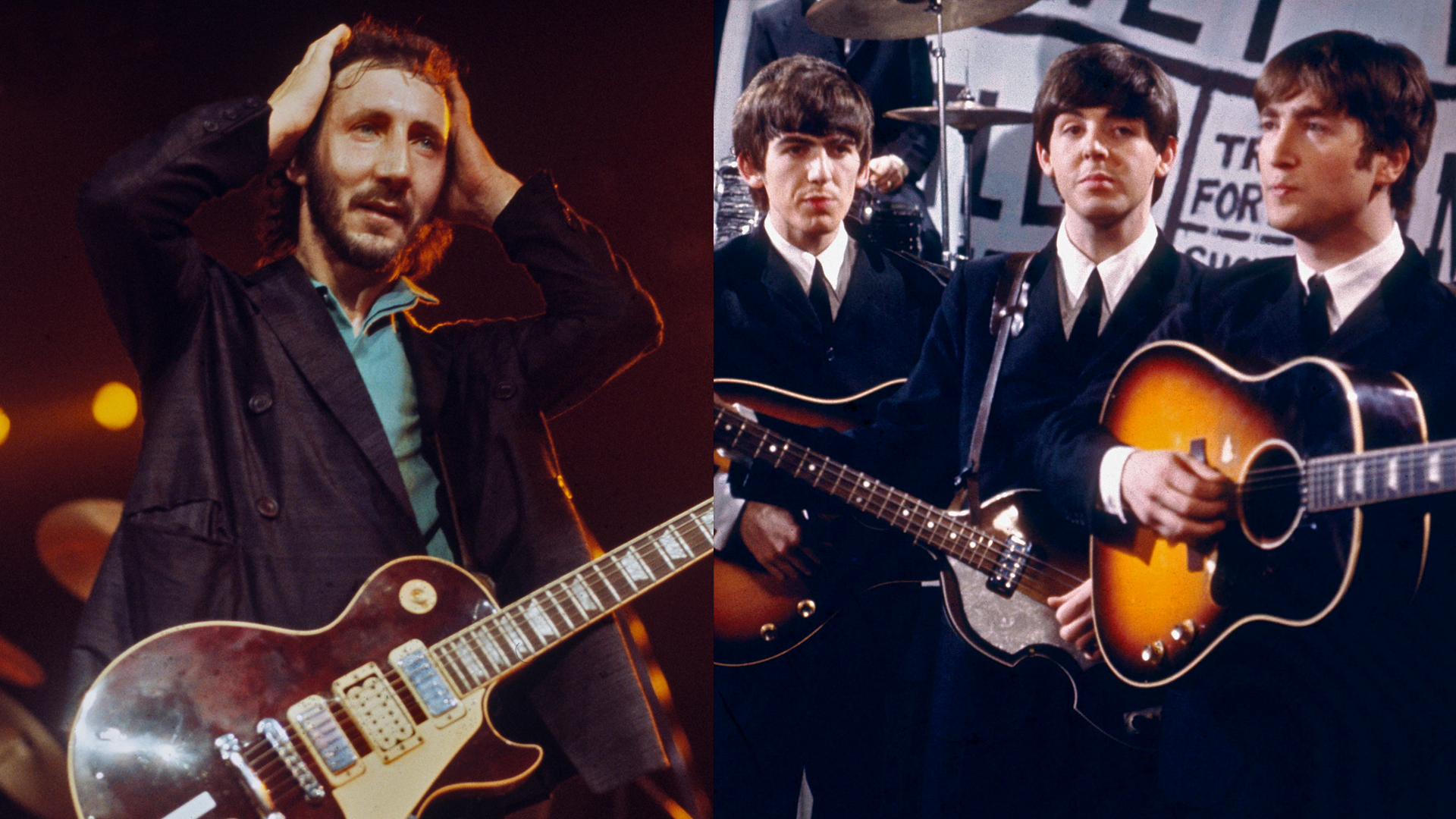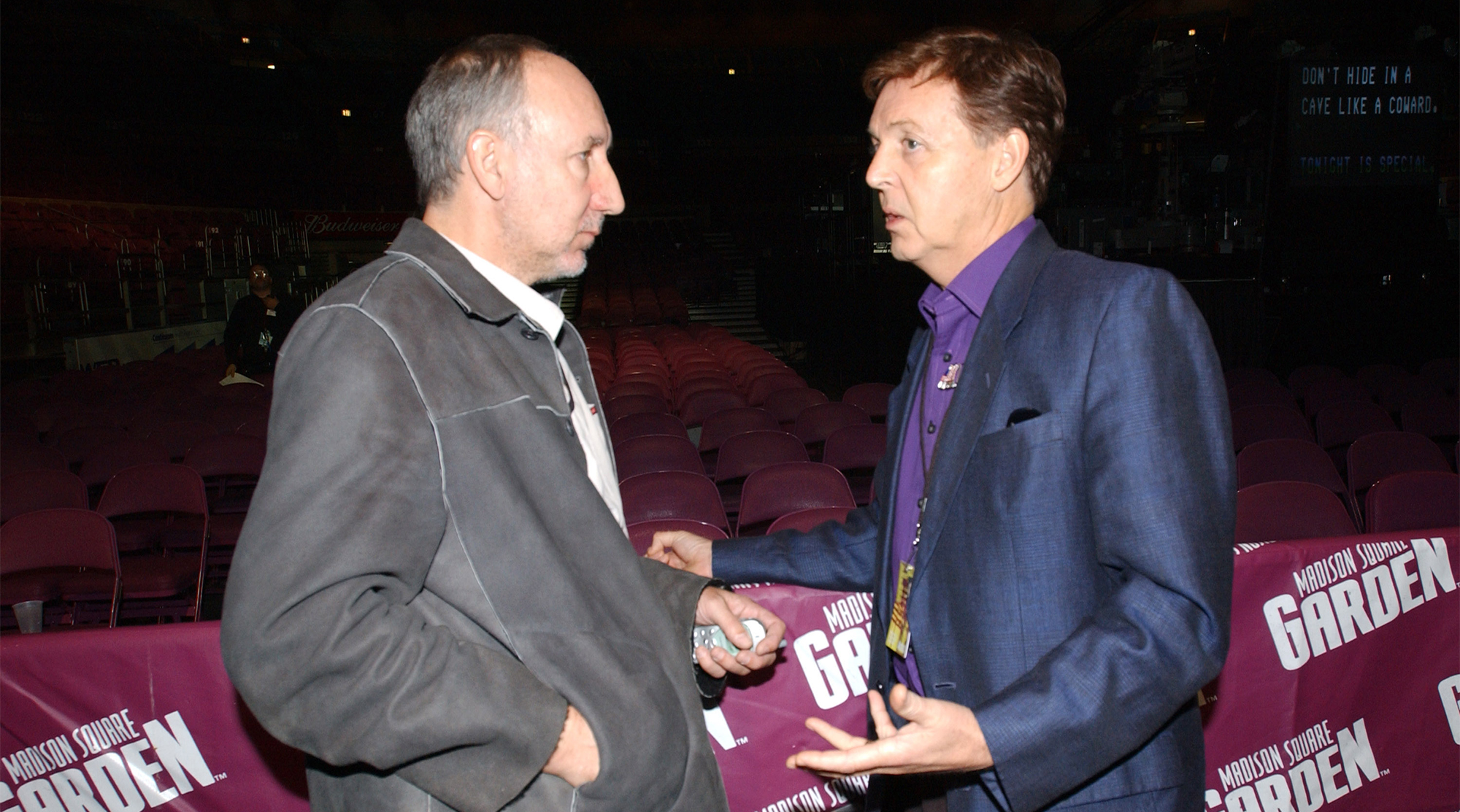“When you actually hear the backing tracks of the Beatles without their voices, they’re flippin’ lousy.” The time Pete Townshend trashed the Beatles on television
The Fab Four were selling records like hot cakes, but Townshend wasn’t buying — not until he heard a pair of sides they cut later that same year

All the latest guitar news, interviews, lessons, reviews, deals and more, direct to your inbox!
You are now subscribed
Your newsletter sign-up was successful
Noel Gallagher may have once made the bold claim that Oasis were bigger than the Beatles, but few artists have trashed the band’s musical abilities. The Who’s outspoken guitarist Pete Townshend, however, bucked that trend when, in the mid ’60s, he called the Fab Four “lousy.”
At a time when the Beatles were putting out their sixth studio album, Rubber Soul, the Who were experiencing a breakthrough year. Their debut album, My Generation, had been hastily put together following the success of the early single "I Can't Explain" and the fervor around Townshend's unapologetic guitar-smashing antics.
Both bands were at markedly different points in their respective arcs. Still, when teed up to talk about the reigning champs in a 1966 TV interview, Townshend didn’t hold his razor-sharp tongue once the subject of "quality" came up.
“What has got quality in the pop business?” he asks. “What’s got quality in anything? It’s just a matter of standards. In the pop business, we’re lucky in that there are no standards.”
That led one of the interviewers, a young woman, to question if Townshend's argument applies to the Fab Four.
“But wouldn’t you say the Beatles and people like that have a certain musical quality?” she questions.
“Ooh, that’s a tough question,” Townshend replies, before telling a story about himself and Who bass guitarist John Entwistle.
All the latest guitar news, interviews, lessons, reviews, deals and more, direct to your inbox!
“Actually, this afternoon, John and I were listening to a stereo LP of the Beatles in which the voices come out of one side and the backing track comes out of the other,” he said.
“When you actually hear the backing tracks of the Beatles without their voices, they’re flippin’ lousy,” he said, spitting the words out.
Unfortunately, this was a common problem with records mixed for stereo in the early 1960s. Before the use of four-track tape decks, around 1964, two-track machines were commonly employed, with the instruments recorded together on one track and the vocals on another.
This worked out fine for mono LPs, but it caused problems for stereo albums, where the only way to create a stereo picture was to place the music on one side and the vocals on another. As the Beatles' first two albums were recorded on two-track tape decks, they both suffered from this when reproduced for stereo.
In addition to sounding awful, the procedure exposed flaws in the playing that vocals — or careful mixing — might have concealed. As one would expect, Townshend tuned into the performances, and he found them wanting — although in all fairness, Please Please Me, the Beatles' first album, was recorded in a single day.

The Who, on the other hand, suffered no such indignities. They were recording on four-track by the time they released My Generation. Although issued only in mono originally, it was remixed for stereo in 2002, with Roger Daltrey's vocals front and center, with Townshend, Entwistle, and their seemingly octopus-limbed drummer, Keith Moon spanning across the stereo field.
Townshend would, of course, come around to the Beatles, eventually.
"I just loved them. They were joyful, they were funny," he said years later, while admitting, "They were more a pop group than I would have liked."
He said the first Beatle songs that "really blew me away" were the single "Day Tripper" and its flipside, "Paperback Writer," a pair of tunes unusual in that they weren't love songs.
"They weren't about falling in love," he said. "They weren't about [girls]; they were about jobs, creativity. They were interesting songs, those two, and I suddenly realized that they were gonna do great things."
Considering those tunes came out in May 1966 — likely around the time of Townshend's 1966 interview — one has to assume he had a change of heart about the group not long after making his comments.
Townshend's mellower moods have seen him praise the Oasis song that made him cry, and reveal his affection for Who singer Roger Daltrey as the band's "driving force," despite the fact that they "don’t communicate very well."
A freelance writer with a penchant for music that gets weird, Phil is a regular contributor to Prog, Guitar World, and Total Guitar magazines and is especially keen on shining a light on unknown artists. Outside of the journalism realm, you can find him writing angular riffs in progressive metal band, Prognosis, in which he slings an 8-string Strandberg Boden Original, churning that low string through a variety of tunings. He's also a published author and is currently penning his debut novel which chucks fantasy, mythology and humanity into a great big melting pot.



